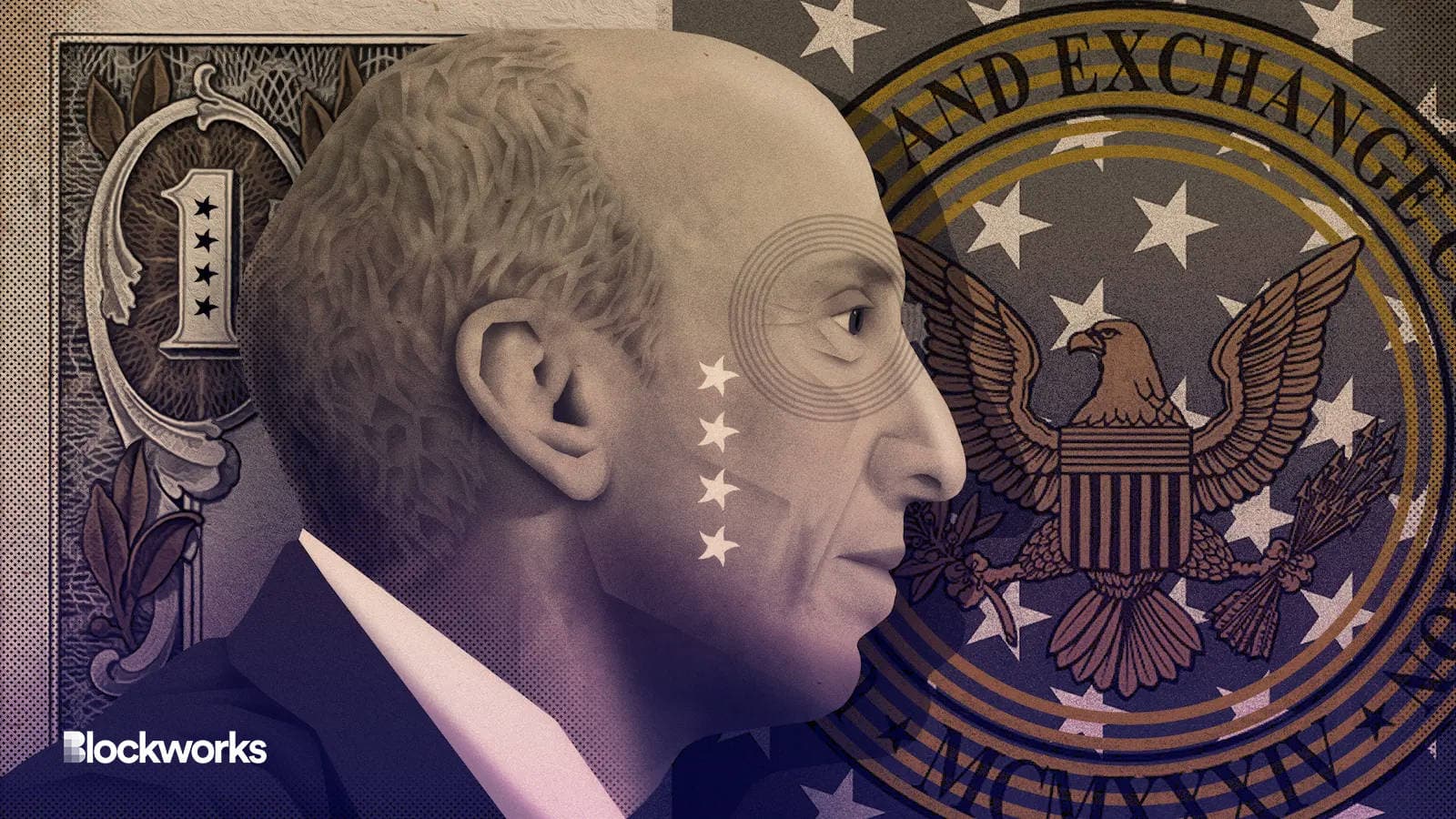SEC Chair Must Testify About ‘Haphazard’ Crypto Strategy: Emmer
SEC chair Gensler is copping flak from pro-crypto Congressman Tom Emmer, who reasons regulators should’ve picked up on FTX’s shortcomings

Gary Gensler, Chair, US Securities and Exchange Commission | Blockworks exclusive art by Axel Rangel
US Rep. Tom Emmer has demanded SEC chair Gary Gensler testify before Congress to address what he labeled “regulatory failures” leading up to the FTX crypto debacle.
In a tweet thread on Friday, Emmer highlighted a March letter from the Congressional Blockchain Caucus sent to Gensler, months before algorithmic stablecoin Terra depegged from the US dollar and sent markets spiraling.
The letter requested clarity on how the SEC targets crypto-related companies to gather information under its regulatory and enforcement mandates.
“The Caucus received info from several sources (FTX, as we’ve said repeatedly, was not one of them) that [Gensler’s] efforts to gather info on crypto companies were not targeted, intentional, or clear; rather, the SEC’s requests were haphazard and unfocused,” Emmer tweeted.
Gensler declined to define the SEC’s crypto strategies to Congress, Emmer said. But if he had, Congress would’ve been informed of “the apparent inconsistencies in Gensler’s approach that caused him to miss Terra/Luna, Celsius, Voyager, and FTX.”
Emmer noted Gensler hasn’t appeared publicly before the House Financial Services Committee since Oct. 2021, “leaving us to learn about the SEC’s crypto investigations, like the one into FTX, through the media.”
Gensler’s oversight of the crypto industry has been subject to wide criticism of late. In a separate episode last week, Rep. Ritchie Torres — a member of the House Committee on Financial Services — said Gensler was “singularly responsible” for failing to expose FTX’s fraud.
“If he had clear authority to do so, why did he fail to uncover the largest crypto Ponzi scheme in history?” Torres said Blockworks via email.
Jake Chervinsky, an attorney for crypto trade group Blockchain Association, echoed Torres’ sentiment, recently tweeting to wonder why the “cop on the beat” allowed FTX to fall apart.
SEC under Gensler keeps most crypto trading offshore
FTX’s flagship exchange was headquartered in the Bahamas and technically didn’t offer services to US residents (alongside a number of other jurisdictions). It handled about $2.6 billion in daily trade volume before it imploded — less than half of market leader Binance.
US users were instead funneled to FTX US, a separate company intended to operate within local regulations. The platform, also spearheaded by Alameda Research co-founder Sam Bankman-Fried, only saw around 15% of the daily volumes of its offshore counterpart.
FTX US’s derivatives business ran through LedgerX, a CFTC-licensed company it acquired last October. While LedgerX is notably one of the few FTX companies not to file for bankruptcy, the CFTC has faced criticism for failing to detect problems with FTX US.
Still, crypto pundits have credited Gensler’s SEC “regulation by enforcement” with driving the lion’s share of crypto trade volumes to platforms operating out of exotic tax havens, including Binance.
Gensler did however say in a recent interview that FTX broke securities laws by trading with customer assets via its sister firm Alameda Research.
“I can’t speak to any one case or any one situation, but our securities laws say that you need to properly segregate customer funds,” Gensler told Yahoo! Finance.
He added that an exchange shouldn’t run a broker-dealer or a hedge fund as a side hustle, saying that “The New York Stock Exchange doesn’t also have a hedge fund on the side and trade against their customers.”
David Canellis contributed reporting.
Get the news in your inbox. Explore Blockworks newsletters:
- The Breakdown: Decoding crypto and the markets. Daily.
- 0xResearch: Alpha in your inbox. Think like an analyst.






